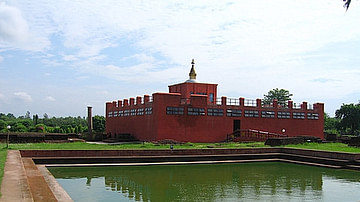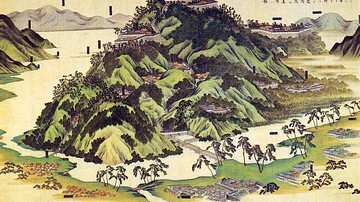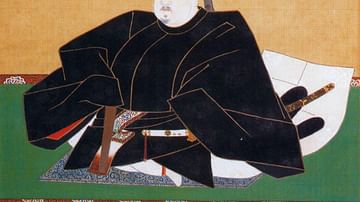Search
Search Results

Definition
Ancient Egyptian Law
Ancient Egyptian culture flourished through adherence to tradition and their legal system followed this same paradigm. Basic laws and legal proscriptions were in place in Egypt as early as the Predynastic Period (c. 6000- c. 3150 BCE) and...

Definition
Lumbini
Lumbini is a village, archaeological site, and place of pilgrimage honored as the birthplace of Siddhartha Gautama (the Buddha, l. c. 563-483 BCE) located in modern-day Rupandehi District of Nepal, Province 5, near the Indian border. It was...

Article
Letters & Post in the Ancient World
Letters and their delivery via a state communication system was a feature of many ancient cultures. The writing medium may have differed but the Mesopotamians, Egyptians, Greeks, Romans, and Incas all had the means to send messengers and...

Article
Feudalism in Medieval Japan
Feudalism in medieval Japan (1185-1603) is the relationship between lords and vassals where land ownership and its use were exchanged for military service and loyalty. Although present earlier to some degree, the feudal system in Japan was...

Definition
Montesquieu
Montesquieu (1689-1757) was a French philosopher whose ideas in works like The Spirit of the Laws helped launch the Enlightenment movement in Europe. His ideas on the separation of powers, that is, between the executive, legislative, and...

Definition
Soma - The Elixir of the Hindu Gods
Soma was a fermented juice drink which was believed to have been consumed by the Hindu gods and their ancient priests, the brahmanas, during rituals. Thought to be an elixir its consumption not only healed illness but also brought great riches...

Definition
Tokugawa Iemitsu
Tokugawa Iemitsu (1604-1651) governed Japan as the third shogun of the Edo period. He implemented a number of important policies that not only consolidated his family's hold on power but also greatly impacted Japanese society for several...

Definition
Roman Law
Roman laws covered all facets of daily life. They were concerned with crime and punishment, land and property ownership, commerce, the maritime and agricultural industries, citizenship, sexuality and prostitution, slavery and manumission...

Definition
Queen Seondeok
Queen Seondeok (Sondok) ruled the ancient kingdom of Silla from 632 to 647 CE and was the first female sovereign in ancient Korea. Silla was on the verge of dominating the whole of the Korean peninsula and Seondeok helped progress her kingdom...

Article
Effects of the Black Death on Europe
The outbreak of plague in Europe between 1347-1352 – known as the Black Death – completely changed the world of medieval Europe. Severe depopulation upset the socio-economic feudal system of the time but the experience of the plague itself...